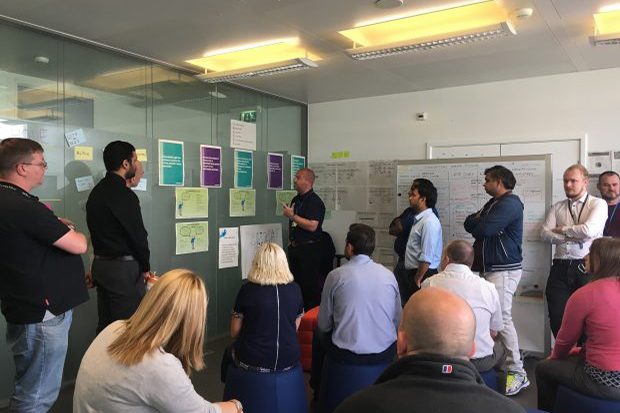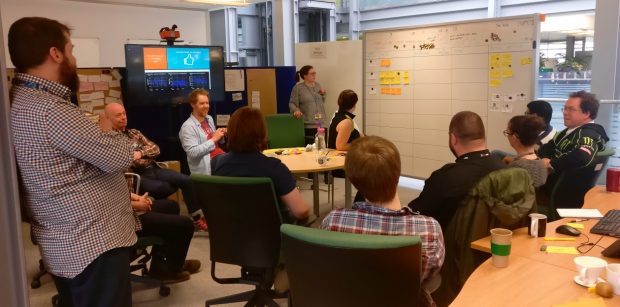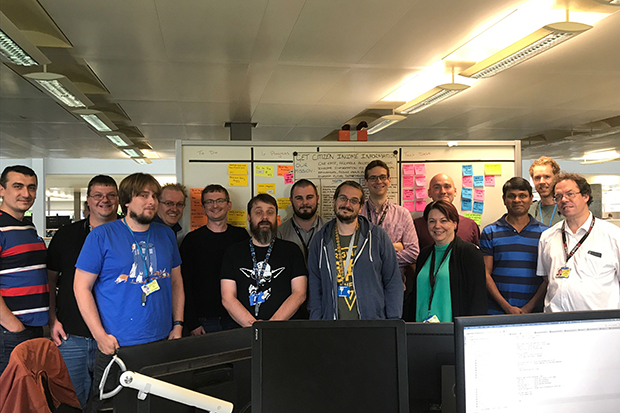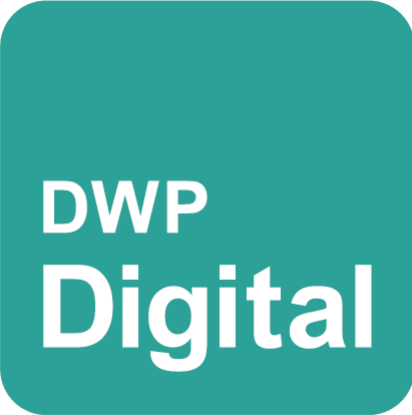
During the past 12 months our team has blogged about the product development phases from discovery to alpha. Throughout our research we found that there were clear opportunities to help DWP teams access citizen information in a faster way.
Now we’re happy to announce that our service has launched and is being steadily rolled out to help multiple lines of business within the department.
Alongside our launch we’ve also had a name change, the Get Citizen Income Information Service has now been renamed the “Income Service”. We wanted something that was meaningful and less likely to be turned in to an acronym that people may not understand.
The Income Service is the first of our enabling data services that forms part of the Citizen Information Exchange. Our team’s objective is to give fast, reliable access to citizens’ income information to enable DWP services to drive operational efficiencies, reduce fraud and error and inform future departmental policy.
Our initial aim was to review how DWP accesses citizen income information and if required, create a new method of doing so. We believe that we have delivered this, so at this point we’d like to reflect on our journey, share three things we’ve learnt along the way and look at where we see the team going next.
1. Go to your users
From our research we discovered that many operational colleagues were using multiple systems to help citizens. If we were to help speed up access to income information it wouldn’t make sense to create a brand new user interface to log in to.
We found that most of our operational colleagues were accessing a central DWP system, so instead of creating more friction points we partnered with the team providing the existing service and infrastructure to provide the data where the users already are.
We’re still solving the initial problem we faced, however we’re looking to build a service which truly adds value and does not add to, interrupt or negatively impact existing workflows.
Face to face user research with product teams, operational staff and others in the department proved incredibly valuable and insightful for the whole team ensuring we remained on the right track.
2. Innovate and use data to deliver the strategy
Although our strategic plan has always been to integrate with DWP digital services to help automate processes we found that there were many constraints with our existing legacy systems.
We’ve developed an API and to help meet user needs better, we also working with other digital teams within DWP to create a user interface. This is a screen within an existing DWP service already used by a majority of our operations colleagues. The screen provides citizen income information only to those who require it in their work supporting citizens.
With this pilot we’re delivering value to colleagues sooner whilst still providing a solution to digital services when required. Our aim of creating efficient user driven government services is dependent on providing access to well-understood data.
Whilst we know providing data to operational colleagues is incredibly valuable we want to ensure that we are not limiting ourselves and understand how to continue building and iterating for services in the future. We’re agile, so we’re going to iterate.

3. Share and reuse where possible
With the work we’re doing, we’ve found a problem and are now working on the solution. Others within DWP may have found this problem too and we need to make sure we’re not duplicating effort.
We’re happy to share the work we’re doing and we try to work in the open, conduct research with colleagues across the entire department and post blogs such as this, but we can still miss some people.
So we hold open show and tells, walk teams through our collaborative space and visualise our findings wherever we can. Throughout the process we’ve sought feedback and as we launch we’re taking a new approach:
- continuing our open fortnightly sprint reviews
- establishing a showcase for stakeholders across DWP to provide a view of what we have achieved and what our direction of travel is
- bespoke deep-dive sessions to engage the profession families within DWP
Through sharing our successes and failures our objectives and vision for our service has started to seep through to colleagues. We’re receptive to feedback and assistance, all toward the goal of meeting the needs of our users and improving services for citizens.
Launching into beta
With the initial launch of our pilot in November 2018, the Disputes team and Child Maintenance Group were the first users to get access to the service. Since launch we have rolled out to an additional three user groups and this rollout will continue for several months to come.
We’ve been working in close collaboration with each of the new user groups to improve their workflow and have already started to iterate the service by clearly identifying income from Employment and Pension reducing the time taken to validate an assessment and improving validation for date range searches.

In conjunction with this the team are constantly monitoring and reviewing the service and its performance. This has led to several iterations of the service being rolled out to improve response times and ensure that the service supports our users, meeting their needs so in turn they can support citizens.
Communication with our users is key as we seek feedback on every aspect of the service to help improve it. We believe that the time and effort the team has spent on research and development has paid off to create something that truly meets the needs of our users.
What’s next for the team
We’ll be supporting, maintaining, iterating and growing the Income service, bringing in new teams who have a need to access citizen information in an easier way whilst ensuring our API remains easy to integrate with. But we’re also looking ahead.
We’re looking to see how we can use what we’ve learned in creating and launching this service to help others within DWP. We’ve identified the need for more context surrounding information DWP collects so more evidence is available for when decisions are made.
Working with the Shared Platform teams within DWP we’re looking at ways to help digital services get the data they need whilst also sharing well understood data they themselves collect.
Working with existing data collection services, digital services and colleagues across government we believe we can create an environment which enables and encourages DWP teams to develop new services to serve our citizens. By understanding our citizens better, we in turn can create more services to suit their needs.
We’re excited about where we’re going, but upon launch it is important to reflect on how far we’ve come. We’ve achieved a lot and we’ll keep you updated on our future data journeys.
Like this blog? Why not subscribe for more blogs like this? Sign up for email updates whenever new content is posted!

Recent Comments